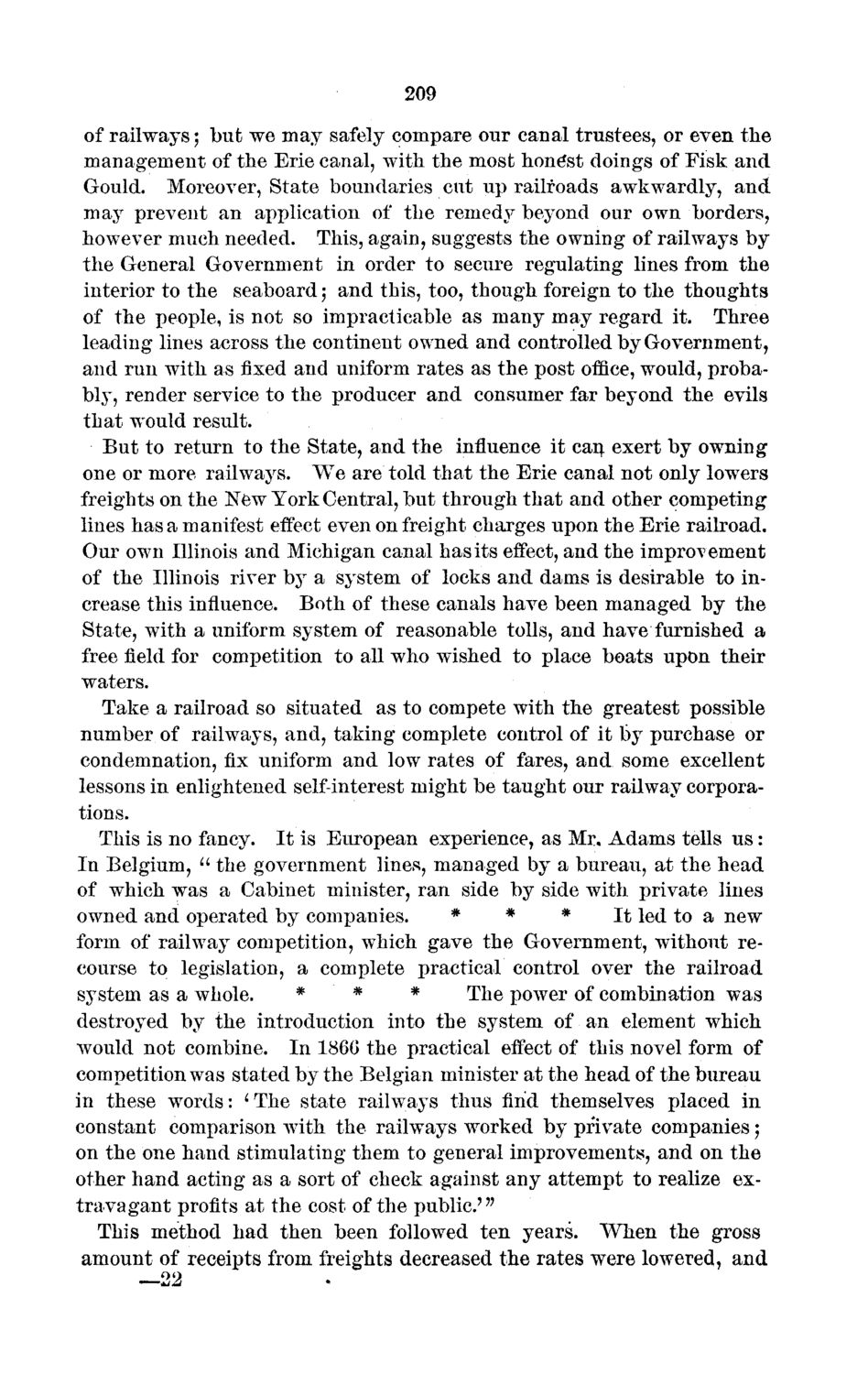| |
| |
Caption: Board of Trustees Minutes - 1872
This is a reduced-resolution page image for fast online browsing.

EXTRACTED TEXT FROM PAGE:
209 of railways 5 but we may safely compare our canal trustees, or even the management of the Erie canal, with the most hone\st doings of Fisk and Gould. Moreover, State boundaries cut up railroads awkwardly, and may prevent an application of the remedy beyond our own borders, however much needed. This, again, suggests the owning of railways by the General Government in order to secure regulating lines from the interior to the seaboard; and this, too, though foreign to the thoughts of the people, is not so impracticable as many may regard it. Three leading lines across the continent owned and controlled by Government, and run with as fixed and uniform rates as the post office, would, probably, render service to the producer and consumer far beyond the evils that would result. But to return to the State, and the influence it can exert by owning one or more railways. We are told that the Erie canal not only lowTers freights on the New York Central, but through that and other competing lines has a manifest effect even on freight charges upon the Erie railroad. Our own Illinois and Michigan canal has its effect, and the improvement of the Illinois river by a system of locks and dams is desirable to increase this influence. Both of these canals have been managed by the State, with a uniform system of reasonable tolls, and have furnished a free field for competition to all who wished to place boats upon their waters. Take a railroad so situated as to compete with the greatest possible number of railways, and, taking complete control of it by purchase or condemnation, fix uniform and low rates of fares, and some excellent lessons in enlightened self-interest might be taught our railway corporations. This is no fancy. It is European experience, as Mr, Adams tells u s : In Belgium, u the government lines, managed by a bureau, at the head of which was a Cabinet minister, ran side by side with private lines owned and operated by companies. * .* * It led to a new form of railway competition, which gave the Government, without recourse to legislation, a complete practical control over the railroad system as a whole. # ' * * xhe power of combination was destroyed by the introduction into the system of an element which would not combine. In 1860 the practical effect of this novel form of competition was stated by the Belgian minister at the head of the bureau in these words: 'The state railways thus find themselves placed in constant comparison with the railways worked by private companies; on the one hand stimulating them to general improvements, and on the other hand acting as a sort of check against any attempt to realize extravagant profits at the cost of the public.'?? This method had then been followed ten years. When the gross amount of receipts from freights decreased the rates were lowered, and —22
| |